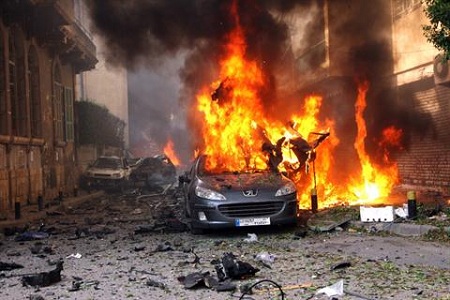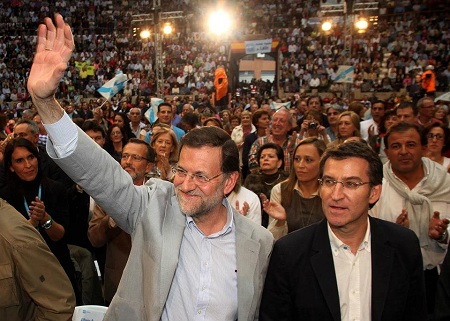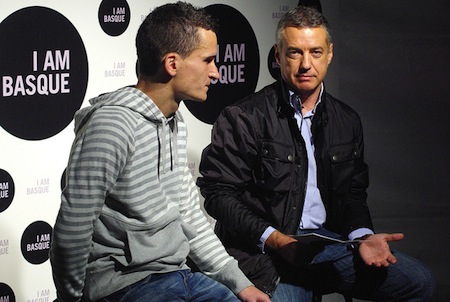Needless to say, the car bomb blast in the Christian neighborhood of Ashrafieh in the Lebanese capital of Beirut marks the deadliest spillover from the Syrian civil war into Lebanon.![]()
You can tell that political tension has been on the rise for some time — just yesterday former Sunni prime minister Saad Hariri accused the largely Shi’a Hezbollah of openly supporting Syrian president Bashar Assad and actively participating in the civil war there.
Hariri belongs to the anti-Syrian ‘March 14’ coalition, while Hezbollah has supported the more pro-Syrian ‘March 8’ coalition, which currently governs Lebanon under prime minister Najib Mikati. The two coalitions stem from 2005, when Syrian troops left Lebanon after nearly three decades of occupation in the wake of the assassination of Saad Hariri’s father, prime minister Rafik Hariri.
If you’re not following him already on Twitter, you should be following Salman Shaikh, director of the Brookings Doha Center — he wonders whether the prevailing ‘mutually assured destruction’ sentiment that has becalmed Lebanese politics since the end of the civil war in the 1980s may be transforming back into a more existential fight for survival. Furthermore, he points to today’s statements by longtime Druze leader Walid Jumblatt (who’s moved from pro-‘March 14’ to pro-‘March 8’ and now seems to be moving back to a more pro-‘March 14’ posture) and Maronite leader Samir Geagea, leader of the Lebanese Forces that directly blame Assad for the blast, which killed eight people, including a top security official, Major General Wissam Hasan, a Hariri ally. So the tone today is (perhaps understandably) incredibly inflamed and accusatory.
Tense though things may be, it’s important to remember this is just the first such car blast in Beirut since 2008. Though there have been short bursts of violence earlier this year in Sunni-dominated Tripoli on the north coast of Lebanon and a high-profile kidnapping in the Bekaa Valley, Lebanon has actually proven incredibly resistant to the spillover from the increasingly brutal civil war. There’s no reason to think this time will be any different — Lebanon’s military remains highly professionalized and not politicized, and can be expected to be on high alarm in the weeks ahead to prevent any further unrest. And many of Lebanon’s top politicians, who emerged out of the horrific Lebanese civil war from the late 1970s and 1980s, certainly know how far their country has come in the ensuing two decades and will hope that political resolve can calm passions, especially in the short term.
But with Turkey and Syria now skirmishing on their border over Syrian shelling that killed five Turkish citizens in the Hatay province earlier this month, and with Israel warning Hezbollah about sending unmanned vehicles into Israeli airspace (perhaps to gather intelligence on behalf of Hezbollah ally Iran), there are signs that the Syrian war is spilling over throughout the region, not just Lebanon.
Photo credit to Hasan Shaaban of the Daily Star.



